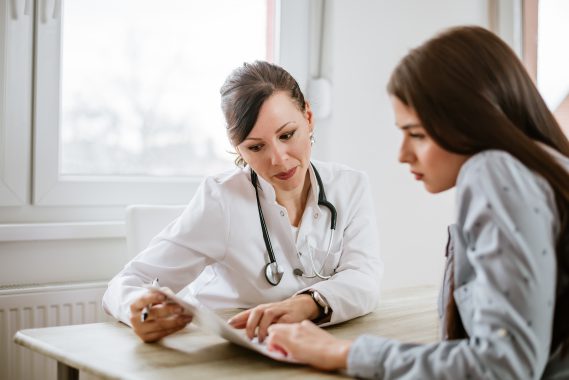GP consultation rates increase by a third in children with parental depression

Young people whose parents have depression are 28% more likely to visit their GP according to a new study.
The research, published in the BMJ, analysed data for 25,252 patients at the Valentine Health Partnership in London.
Through the data, the researchers were able to look at anonymised household groups and found that parental depression is associated with increased GP consultation rates among adolescents.
Children who have parents with depression are also 41% more likely to attend A&E, 47% more likely to be admitted as an inpatient and 67% more likely to have an outpatient appointment.
According to the latest figures one in six adults in England was prescribed antidepressants last year – nearly half a million more than in 2015.
Dr Rebecca Rosen, a GP partner at Valentine Health Partnership and co-author of the research, said: ‘This study provides evidence about the influence that parental health can have on children’s use of GP services and highlights the importance of providing personal and family continuity for some patients.
‘We need to develop simple ways for practices to identify which families would most benefit from this type of relational holistic care.’
The research also found that there was higher demand for emergency and GP care for children of parents who themselves are higher users of these services.
Kathryn Dreyer, lead researcher on the paper and a principal data analyst at the Health Foundation, said: ‘Our research is an observational study and did not explore the reason for increased demand. There are several possible explanations for the findings.
‘For example, it could be that parental depression might be a consequence of prolonged illness in a child. While we controlled for many factors in our analysis, the association we detected may also be confounded by other factors such as the wider social support available to a family, or their household income.’
Pulse October survey
Take our July 2025 survey to potentially win £1.000 worth of tokens

Visit Pulse Reference for details on 140 symptoms, including easily searchable symptoms and categories, offering you a free platform to check symptoms and receive potential diagnoses during consultations.











